Ivory Coast President Set For Victory After Contested Poll
Ivory Coast President Alassane Ouattara appeared set for contested victory on Monday after a weekend election marred by clashes that killed at least nine during an opposition boycott to derail his bid for a third term.
Violence erupted in August, sending a wave of alarm through West Africa, when Ouattara said he would run again, to the fury of the opposition who called it a constitutional breach akin to an "electoral coup."
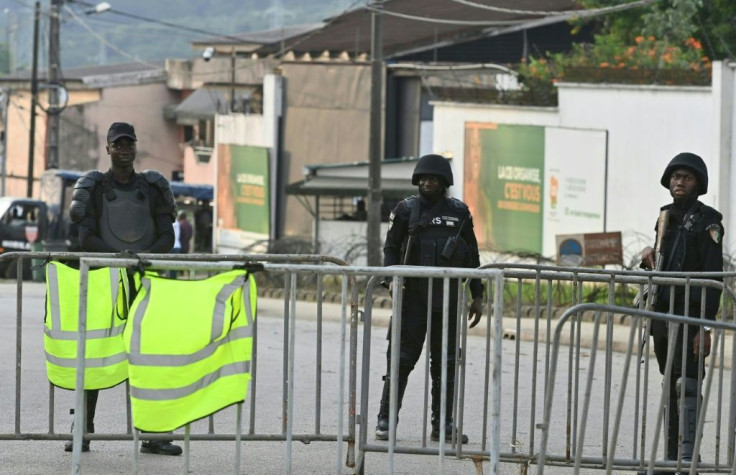
Pre-election clashes killed at least 30 and the boycott stoked fears of a repeat of the 2010-2011 crisis when 3,000 people died after then president Laurent Gbagbo refused to accept defeat by Ouattara.
By midday Monday, the Electoral Commission had released preliminary results from around a quarter of the country's 108 regions showing Ouattara with a commanding lead, especially in parts of his stronghold in the north.
More results were expected later on Monday though the timing of the final count was still unclear.
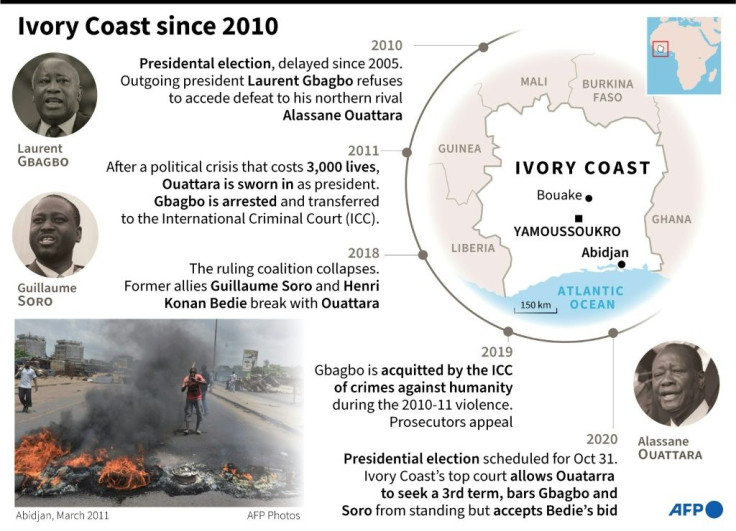
Ouattara's lead was expected, as opposition leaders Henri Konan Bedie and Pascal Affi N'Guessan, among only four candidates allowed to take part, called for a boycott.
They already rejected the ballot as a failure and called for a "civilian transition" from Ouattara's government, provoking a ruling party warning against trying to stir up unrest.
An African Union observer mission said on Monday the election was "generally satisfactory" despite lack of consensus.
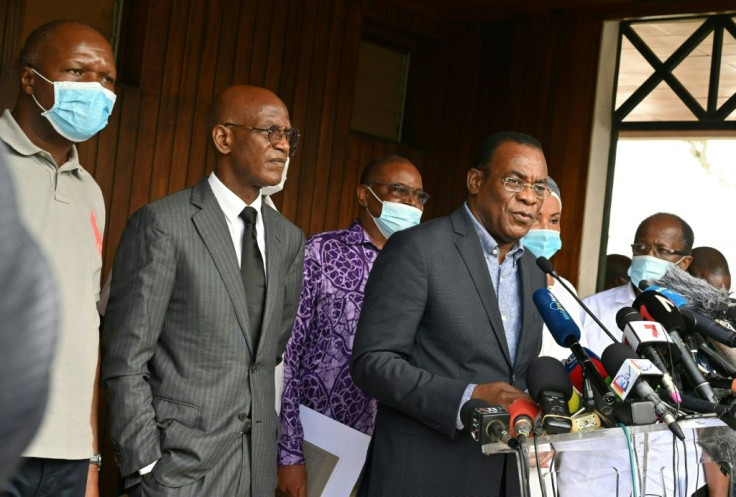
In contrast, the US watchdog the Carter Center said "The overall context and process did not allow for a genuinely competitive election."
"The process excluded a number of Ivorian political forces and was hampered by an active boycott," it said in a statement issued with the South Africa-based Electoral Institute for Sustainable Democracy in Africa (EISA).
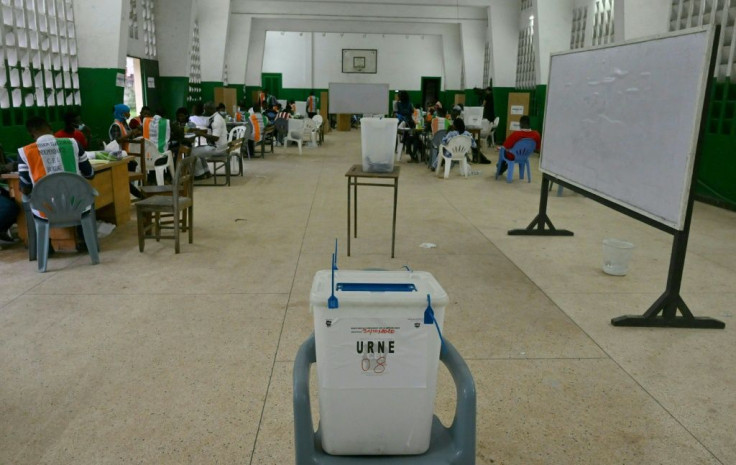
The tension in francophone West Africa's top economy is the latest test for a region where Guinea is mired in a post-election dispute, Nigeria emerging from widespread unrest and Mali from a coup.
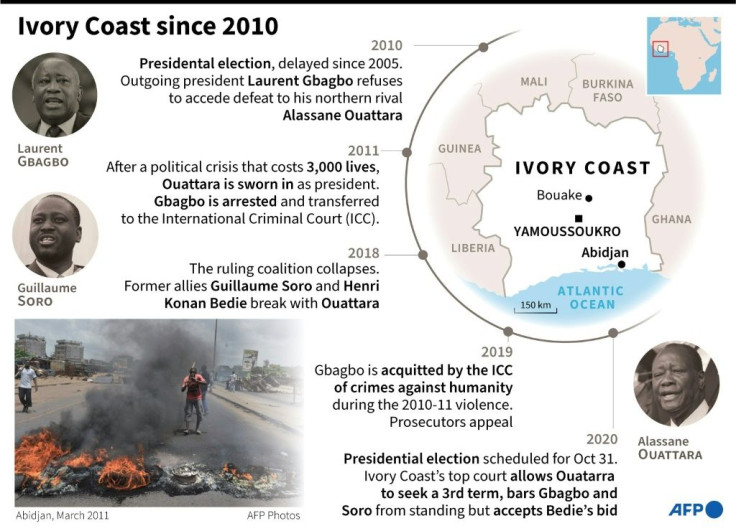
Abidjan, the country's economic capital, was calm on Monday with no sign of protests.
But tensions were still high in Daoukro, an opposition stronghold 235 kilometres (146 miles) north of Abidjan, where protesters had set up barricades on election to blockade roads.
"We're here on alert, waiting for the results," said General Aime, a local opposition activist.
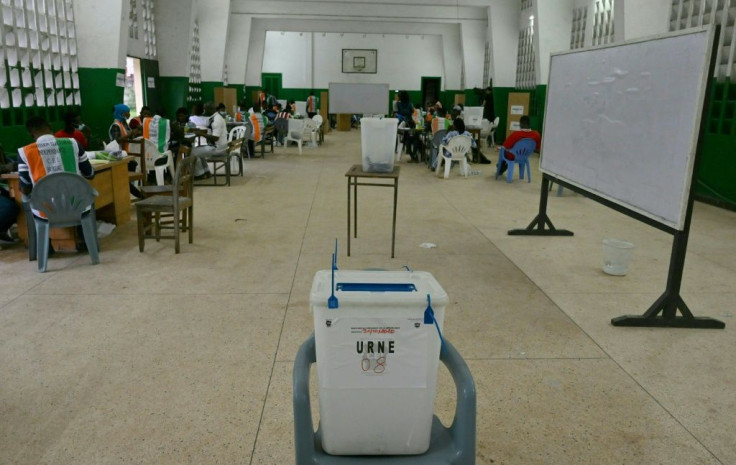
Residents said four more people had been killed on Sunday in central Toumodi when houses were set ablaze in clashes between neighbouring ethnic communities who back rival political factions.
At least five people died in clashes on Saturday.
The anger sparked by Ouattara's third term has revived memories of past Ivorian feuds with roots even before a 2002 civil war split the country in two, north and south.
"The big post-election challenge for the party in power is going to be creating a dialogue with the opposition," said political analyst Rodrigue Kone.
"If not, then these tensions are just going to keep happening."
Pockets of unrest, some vandalised voting material and closed polling stations were reported mostly in opposition strongholds during Saturday's election.
But rival factions gave conflicting accounts of the extent of the boycott.
Electoral authorities said only 30 to 40 polling stations out of more than 22,000 nationwide were vandalised, and Ouattara dismissed the impact on voting as isolated.
Protests had degenerated into clashes between ethnic communities in Tiebissou, Oume, Yopougon, a poor Abidjan district, and in the western town of Gboguhe, according to witnesses.
Ouattara, 78, had said after his second term he planned to make way for a new generation, but the sudden death of his chosen successor prompted him to seek a third term.
The Ivorian leader says a constitutional court ruling approved his third term, allowing him to reset the country's two-term presidential limit thanks to a 2016 reform.
Bedie, 86, and other opposition leaders have also accused the electoral commission and the constitutional court of favouring the government, making a fair vote impossible.
When Ivory Coast emerged from the civil war after 2002, the country was split in two, the north held by rebels and the south by forces of then president Gbagbo.
Ouattara won a long-postponed election in 2010 although Gbagbo refused to accept defeat. French forces eventually intervened to help Ouattara loyalists oust the former president.
© Copyright AFP 2024. All rights reserved.





















